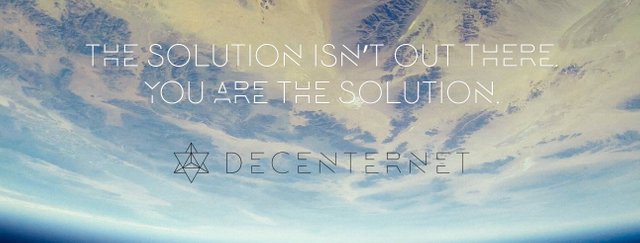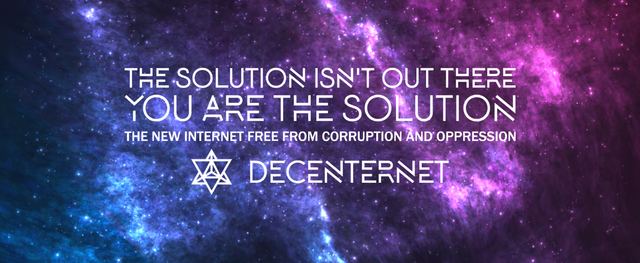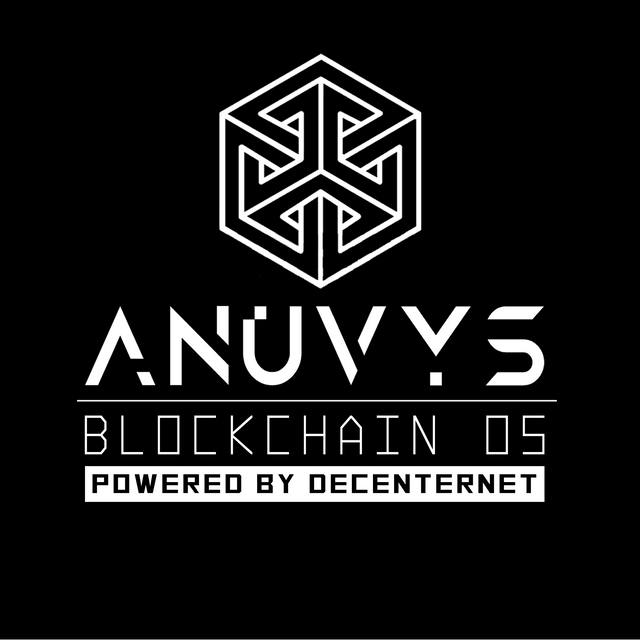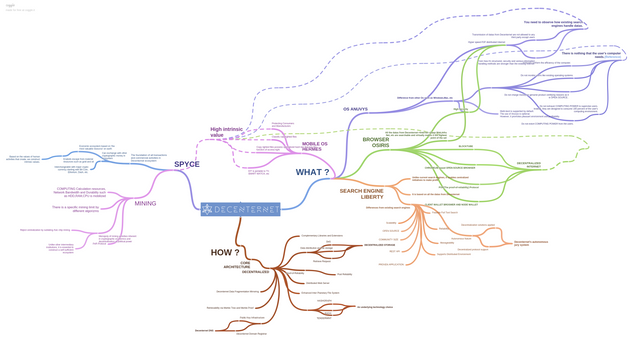CAN THIS NEW TECHNOLOGY BE THE ULTIMATE SOLUTION TO THE NET NEUTRALITY ISSUE AND CREATE THE DECENTRALIZED INTERNET OF THE FUTURE? A REVIEW OF DECENTERNET.
Can This New Technology Be the Ultimate Solution to the Net Neutrality Issue and Create the Decentralized Internet of the Future?

A Review of Decenternet
When I first got online in the early 90’s, the Internet was a very different place from today. At first, I didn’t even have a web browser, nor did I have access to WWW, the World-Wide Web.
My experience of the Internet was limited to participating in the USENET conferences, sending and receiving e-mail, and occasionally connecting to the local BBS (Bulletin Board Systems), run by cyberpunks and computer enthusiasts in my area. The ethos of that time period was strongly influenced by the open-source mindset, hackers’ practical philosophy, and cyberpunks’ ideas (and ideals). We were uploading technical manuals and fantasy literary works, sharing software freely, modifying its source code as we saw fit, publishing our work in relevant mailing lists on the USENET, encrypting our emails with PGP to prevent censorship and snooping by the governments.
The following decades saw an increased mainstream adoption of the Internet protocols and services, like WWW, which almost became synonymous with the Net itself in many people’s minds. But they have also seen increased centralization, commercialization, and drastic increase of state and corporate control over the flow of information and the access to it. A computer and net enthusiast in me rejoiced, witnessing hundreds of millions new people getting online and accessing the global repository of human knowledge and expression. A cyberpunk in me dismayed at the examples of centralized control, censorship and filtering of the content that was supposed to be free, according to the cyberpunks’ ethos.
Even as more and more people were using the Internet for all kinds of purposes, the onslaught on privacy and freedom of the individual Net users was only increasing as the time went by. Recently the public debates on the highly contested issue of Net Neutrality brought these concerns to the forefront of people’s awareness. Suddenly the old ideas of the cyberpunk movement felt fresh and relevant once again.
Enter Decenternet
A solution to the current unfortunate reality where state authorities and large corporations have control over users’ data and access to the Internet comes from a start-up known as the Decenternet – or Dnet, for short. The goal is grand-scale and ambitious: to lay the infrastructural foundation for the peer-to-peer, decentralized, neutral, censorship-resistant, hyper-speed internet of the future. This foundation will be built upon the blockchain technology – an invention of Satoshi Nakamoto, the pseudonymous creator of Bitcoin, described by him in the Bitcoin Whitepaper, published in the beginning of 2009.

Dnet aims to populate this technological foundation with an entire ecosystem of tools, products and services, including a web hosting platform, a Linux-based operating system called Anuvys that will interact natively with the blockchain, a search engine Liberty (just like Google search, but without storing user’s data), the fast and secure Osiris browser that can navigate Decenternet and on which Dnet’s dApps can run natively and efficiently. Add to this Spyce (a wink to Frank Herbert’s fans), a native currency used to transact all trade and economic activity on the Dnet and paid out as a reward for stable and reliable nodes of the network. All of these elements of the decentralised and neutral Internet of the future are described and explained in the Decenternet whitepaper. When you read it, it becomes obvious that it was written by computer scientists very familiar with the foundational protocols and tools of today’s Internet. And, besides their technical expertise, they also share ideals and vision akin to the ethos of the cyberpunks movements from the 90’s.

Since Dnet’s vision has many different components, it might be difficult to grasp it all at the first glance. You may want to check out Decenternet’s Mindmap, published on their website:

This mindmap will give you the big picture and an overview of the entire project and how its different parts build upon and interact with each other.
According to the Dnet Roadmap, the Main Net will go live in the 4th quarter of 2020. It means that the developers will have plenty of time to build, test and debug the software before it is ready for the mainstream deployment.
ARPANET’s Endorsement
It’s interesting and worth noting that the ARPANET Foundation sent the letter of support to the Decenternet’s team, endorsing and encouraging this start-up. If you haven’t heard about ARPANET before, it was basically the mother of the modern Internet: the first network that implemented packet switching and the TCP/IP protocol. ARPANET was the technological and infrastructural core from which the Internet emerged and spread all over the planet. In my eyes, their endorsement of Decenternet grants a lot of credibility to this project.
It is impossible to give a detailed coverage of all the interesting and exciting aspects of this project in one single article. Therefore, I collected some links to the project-related resources that I encourage you to explore on your own and form your own independent opinion of Dnet and its structural elements. I am also interested in learning your impressions and opinions of this project. I will be covering some of Dnet’s individual aspects in more details in the coming articles on this blog.
If you want to learn more:
Visit Decenternet’s website: decenternet.com
Visit Anuvys website: anuvys.com
If you want to engage and interact with the team behind Decenternet:
Follow Decenternet on Twitter
Sources used in the work on this article:
Net neutrality. From Wikipedia, the free encyclopedia.
Cyberpunk, Style and Ethos. From Wikipedia, the free encyclopedia.
The Open Source Ethos, ver. 4.5.17. Retrieved July 15th, 2018
The Decenternet Initiative, whitepaper ver. 3.3 from April 19th, 2018. Retrieved July 15th, 2018
ARPANET. From Wikipedia, the free encyclopedia.
ARPANET Foundation’s letter of support to the start-up Decenternet Project. May 8th, 2018 Retrieved July 15th, 2018
DISCLAMER:
The information contained within this post shall not be taken as a financial advice. I am not a financial advisor and none of your investment decisions should be carried out based on any information presented here. You can lose all of your money by investing. The information presented in this article is for educational and entertainment purposes only.
Shared on Twitter:
Shared on LinkedIn:
Great article about net neutrality and decentralized internet. Thanks for the information. I'm digesting the enormity of what Decenternet are trying to do in solving some of these issues. For anyone interested in privacy and neutrality, this is definintely something to take a look at.
Indeed, this project is huge and complex. One can study it for days, but it feels like there’s always a deeper layer one can learn more about. I think that in my coming articles I would like to focus on one specific element at a time and review it in more details.
This awesome content has been upvoted by Oracle-D
My question is, if the Internet is supposed to be free, why are they having a crowdsale?
If this is a bounty and you are getting paid in Dnet tokens (or any other asset) to write this post, you should add that to your disclaimer.
I'll check out Dnet but monetarizing a project through holding an ICO which claims to be demonaterizing the internet is a little ironic don't you think?
Thank you for your critical feedback, @crypticat. Sharp as always!
I guess they plan to hold an ICO to fund the development efforts.
I am not being paid by Dnet in form of their tokens or in any other currency/token. And I wasn’t promised any kind of reward by them for writing this. If I were, I would have stated it very clearly.
I wrote this article voluntarily, without expecting any kind of remuneration. The only reward I hope for is the discussion in the comments and whatever this post manages to earn in terms of author rewards. But it’s not possible to know in advance, is it?
So you're a true fan, I like those endorsements best, you should see if there is a bounty.
I was on the internet back in the day too but was too young to really take advantage of the boom in the 90s. Crypto is definitely very similar and I hope many aspects of it stays the same, this monetarizing and Lambo aspect of it makes me sick, also the unfair distribution of certain coins. But decentralization and giving people power over their information are two major pluses.
I’m not really a fan of Dnet (yet). But I’m a huge fan decentralization and I abhor censorship and oppression. So naturally I really like the concept that Decentranet puts forward. I am curious about their project and I want to see it succeed. But there are no guarantees, of course. There are many great ideas that never see the light of day, especially in this space. So, I would say I’m cautiously optimistic and I will be following the development of Dnet, like I follow many other projects in this space that I like.
I am learning much from your sharing.
I believe that this took will and is going to promote our security.
I cant wait for your next article:)
It's SO interesting and almost impossible to keep up with what's being developed right now! It's going fast :-) I'll read more about this project, thanks for bringing it to everyone's attention :-)
Thank you for your feedback, @soyrosa. I enjoyed reading your latest post about different airdrops too.
Thanks! :D Glad you liked it.
I found this a really interesting article and it was useful to learn a little more about the USENET and your personal journey of how this was very relevant to the way you interacted through networks before the www - became the mainstay of the modern centralised internet. I look forward to reading more on similar topics.
I learned more about net neutrality and decentralized internet than I ever knew. You really put out a lot of information and it will take me a while to sort and file it, but, I thank you for educating me.
The more I learn, the less I seem to know. I remember bulletin boards. The only way to transmit mail. Funny that the post in Russian caught my attention and this one blew past me.
Thanks for your awesome article! Taking it home with me.
Thank you, Denise! Yes, sometimes it’s something unusual (like a post written in a different alphabet) that catches our attention, while the ‘ordinary’ information gets filtered out by our brain.
The #BattleForTheInternet and the campaign to #SaveNetNeutrality are especially important for you and other people living in the US. But the outcome of this fight will influence the people in the rest of the world too, no doubt about it.
Oh, so cool that you remember BBS!! I was so excited the first time I got connected to one! It felt like some sort of techno-magic at the time! How little did we know…
Thank you for stopping by and reading my post. I have missed you and your comments! :)
I have been away from home so much this year! It is like I come home to visit!
The bulletin board was so amazing! It was very hocus pocus! It became real when I got my first reply. I could not wrap my head around how it found me, all the way from Europe. (where my brother lived)
This is awesome! I did not catch the link between the Dune model and the spyce currency! Very interesting!! What an informative blog, and what potential Decenternet has to change the internet forever!! I am very interested now!
Both spice melange in the Dune universe and the Spyce of Dnet are a precious resource that has to be harvested / extracted / mined. :D And, when you think about it, Dune and Dnet share 75% of their letters! And the ones they don’t share are the alphabet neighbours! (Yes, I’m weird like that)
Dune was one of my favourite books as a teenager. And I loved the film too, even though it missed out about half of the book when Paul Atredeis was with the Fremen.
Dune completely blew my mind, when I discovered it in my early teens too. I think SyFy made a mini-series based on the first two books. It actually turned out pretty decent.
I liked children of Dune too, but God Emperor of Dune was totally weird as I remember. That was the one where Leto turned into a pilot I think?
Not exactly a pilot, but like a hybrid between a sandworm and a human who could live eternally and communicate with all his ancestors, who lived inside his mind, and see all the possible futures. It was pretty weird, I agree.
haha! you are a special one Oleg! Great to read your stuff, and looking forward to your future research on this project!